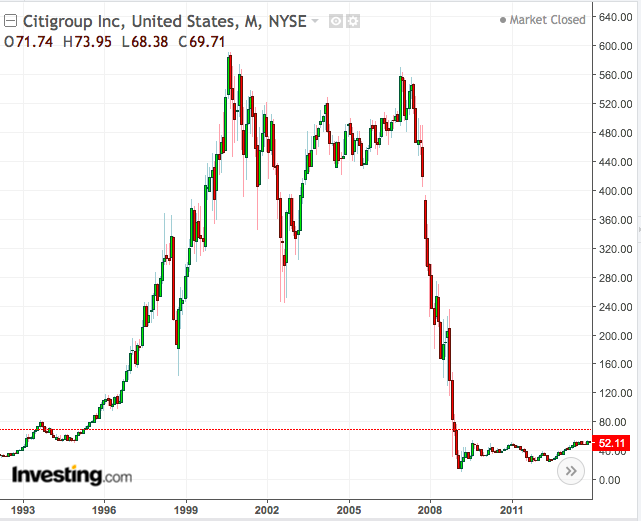Over the past year, investors have been wary of banking stocks, and for good reason. As the stock market extended it longest bull run in US history, the country's largest financial companies were left behind. Indeed, their shares seriously underperformed other sectors.
But that period of lagging performance for bank stocks could be a thing of the past. Earnings reports for the third quarter show that some of the biggest US banks are beginning to reap the benefits of an economy in which consumer sentiment is healthy, companies are borrowing to expand, and credit losses have been minimal.
Yesterday, two of the US's biggest banks, Goldman Sachs (NYSE:GS) and Morgan Stanley (NYSE:MS) produced better than expected third-quarter results. Goldman’s profit surged 19%, while Morgan Stanley reported that its bottom line improved 17%.
What's more, last week, JPMorgan & Chase (NYSE:JPM) also beat analyst estimates, posting a 24% rise in profit, boosted by strength from its consumer business which offset weak trading results. These robust earnings provide strong evidence that for the first time since the 2008 Financial Crisis, the US's largest banks are one again well positioned to reward investors.
But though banks are beginning to look attractive again, some offer a better risk-reward equation than others. If you're looking to reenter this sector, we think Citigroup (NYSE:C) is one of the best banking stocks to own right now.
Citigroup: Laggard Ripe for a Rebound

When it comes to judging banks based םמ their share performance since the 2008 Financial Crisis, Citigroup has been a laggard. Its stock is still down more than 60% since the collapse of Lehman Brothers in mid-September of that year, making it the worst performing bank among US majors, by far.
Despite this, Citi's latest earnings report, released this past Friday, shows that the lender is headed in the right direction after years of cost-cutting and re-balancing. In the third quarter, the New York-based lender posted a 12% surge in profits, to $4.62 billion. Earnings per share were $1.73, beating analyst expectations of $1.69 a share.
Operating expenses fell 1%, surprising expectations and indicating that the company is on its way to meeting financial targets for this year. Citi also showed an improvement in the yield from its North America Citi branded credit card business. Analysts were watching this metric closely and the improvement adds another positive point for Citi's profit outlook.
But the brightest factor that makes Citigroup a great banking stock to bet on is CEO Michael Corbat’s success at sustainably cutting costs for the past six years. These efforts are reflected in the lender’s rapidly improving efficiency ratio, or expenses as a percentage of revenue. This metric has come in at less than 60% for the past three years, making it the only major bank able to maintain such a winning streak.
Another factor making Citigroup stock a better pick than its peers is the lender’s aggressive capital return plan. This year Citigroup hiked its quarterly dividend by $0.13 to $0.45, for a current yield of 2.60%, and announced its intention to return $17.6 billion to investors via stock buybacks.
During the third quarter, Citi returned $6.4 billion of capital to common shareholders through buybacks and dividends. Finally, over the past 12 months, the lender has cut its common shares outstanding by over 200 million, or 8%.
Bottom Line
On its valuation metrics, it’s tough to come up with a banking stock that has greater appeal than Citigroup. Shares don't trade at a premium to the book value of its assets like almost all of its peers.
Currently trading at $69.71, Citigroup is one of the cheapest picks among the big financial names. In an environment where interest rates are rising and the US economy is showing strength, Citigroup’s stock can only get better from here. Its place at the bottom of the pack is what makes Citi ripe for a powerful rally.
